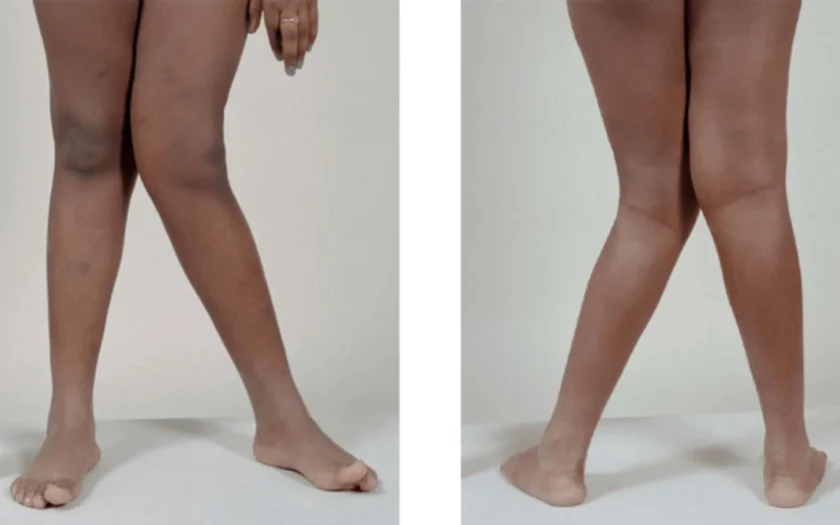Dizziness is a common but often misunderstood sensation that can leave individuals feeling unsteady or lightheaded. With various underlying causes ranging from minor issues to serious medical conditions, understanding its origins and symptoms is crucial for effective management. This article delves into the mysteries of dizziness, exploring its causes, signs, and strategies for relief.
Dizziness encompasses a spectrum of sensations, including feelings of:
- Unsteadiness
- Wooziness
- Weakness
- Faintness
While dizziness is a common experience for many individuals and typically not indicative of a serious underlying issue, it can still disrupt daily activities and quality of life. Fortunately, there are strategies available to alleviate and manage dizziness effectively.
Exploring the Symptoms of Dizziness: Recognizing Its Various Manifestations
When experiencing dizziness or a “dizzy spell,” individuals may encounter a range of sensations, including:
- Lightheadedness
- Feeling unsteady or off-balance
- Sensation of weakness
- Impending faintness or near-fainting
Furthermore, dizziness can manifest as vertigo, characterized by a perception that the environment is spinning or moving. Recognizing these diverse symptoms is crucial for accurate diagnosis and effective management of dizziness-related issues.
Exploring the Causes of Dizziness: Unveiling its Multifaceted Origins
Dizziness is a prevalent phenomenon among adults and is typically benign in nature. However, its etiology can stem from a variety of factors, including:
1. Physiological Triggers:
- Low blood pressure (hypotension)
- Migraine episodes
- Stress or anxiety
- Hypoglycemia (low blood sugar)
- Dehydration or heat-related exhaustion
- Motion sickness or travel-induced discomfort
- Anemia
2. Underlying Medical Conditions:
- Neurological disorders affecting the brain and nerves
- Ear-related conditions such as Meniere’s disease and labyrinthitis
- Ocular abnormalities
- Cardiovascular issues affecting heart function
3. Medications and Substances:
- Certain medications, including those for hypertension or psychiatric conditions, may induce dizziness as a side effect.
- Alcohol consumption can also lead to feelings of dizziness and imbalance.
4. Circulatory Dysfunction:
- Reduced blood flow to the brain, resulting from factors such as dehydration, severe pain, orthostatic hypotension (a sudden drop in blood pressure upon standing), or vasovagal responses triggered by distressing stimuli.
Recognizing the diverse array of potential triggers for dizziness is crucial for accurate diagnosis and targeted intervention. Additionally, understanding the circulatory dynamics and environmental factors that can precipitate dizziness aids in implementing preventive measures and mitigating its impact on daily life.
When to Seek Medical Attention for Dizziness: Understanding Red Flags
While dizziness is often benign, certain accompanying symptoms warrant immediate medical evaluation. Seek prompt medical attention if you experience dizziness along with any of the following:
1. Chest Discomfort:
- Pain, pressure, heaviness, or tightness in the chest, shoulders, neck, arms, jaw, or back.
2. Additional Cardiovascular Symptoms:
- Nausea, cold sweats, or shortness of breath, which may indicate a potential cardiac event.
3. Neurological Signs:
- Numbness or weakness in your face, arm, or leg, suggestive of a possible stroke or neurological impairment.
- Difficulty speaking, understanding, or swallowing, which could indicate a neurological deficit.
4. Visual Disturbances:
- Changes in vision in one or both eyes, such as blurriness or loss of vision, which may signal a serious underlying condition.
5. Altered Mental Status:
- Confusion or loss of consciousness, which could indicate a medical emergency requiring immediate intervention.
These symptoms may suggest an underlying medical condition that requires urgent evaluation and treatment. If you experience any of these red flags in conjunction with dizziness, do not delay seeking medical assistance. Prompt evaluation by a healthcare professional is essential for timely diagnosis and appropriate management of your symptoms.
Diagnosing Dizziness: Understanding the Evaluation Process
When presenting with symptoms of dizziness, your doctor will conduct a comprehensive evaluation to determine the underlying cause. The diagnostic process typically involves the following steps:
1. Medical History and Physical Examination:
- Your doctor will inquire about your symptoms, medical history, and any medications you are currently taking. A thorough physical examination will be conducted to assess vital signs, neurological function, and signs of other associated conditions.
2. Specialized Testing:
- Based on your symptoms and examination findings, your doctor may recommend further diagnostic tests to pinpoint the cause of your dizziness. These tests may include:
- Audiometry: Assessing hearing function to rule out ear-related disorders.
- Imaging studies: Magnetic resonance imaging (MRI) or computed tomography (CT) scans of the brain to evaluate for structural abnormalities or lesions.
- Electrocardiogram (ECG) or Holter monitoring: Assessing heart rhythm and function to rule out cardiac causes of dizziness.
- Blood tests: Screening for metabolic imbalances, anemia, or other underlying medical conditions.
- Vestibular function tests: Evaluating inner ear function and balance mechanisms through tests such as electronystagmography (ENG) or videonystagmography (VNG).
3. Referral to Specialists:
- Depending on the suspected cause of dizziness, your doctor may refer you to a specialist for further evaluation and management. This may include:
- Neurologist: Assessing neurological function and investigating potential central nervous system disorders.
- Physiotherapist: Providing vestibular rehabilitation therapy to address balance and coordination issues associated with dizziness.
By conducting a comprehensive assessment and utilizing appropriate diagnostic modalities, healthcare providers can identify the underlying cause of dizziness and develop an individualized treatment plan tailored to your needs. Collaboration with specialists ensures comprehensive care and optimal management of your symptoms.
Managing Dizziness: Tailored Treatment Approaches
Treatment for dizziness is typically determined by its underlying cause, but even when a specific cause cannot be identified, various strategies can help alleviate symptoms. Consider the following treatment options:
1. Medications:
Depending on the cause of dizziness, your doctor may prescribe medications to address underlying conditions or alleviate symptoms. These may include vestibular suppressants, antihistamines, antiemetics, or medications targeting specific medical conditions contributing to dizziness.
2. Balance Exercises:
Engaging in balance exercises and vestibular rehabilitation therapy can improve balance and coordination, reducing the frequency and severity of dizziness episodes. These exercises may include gaze stabilization, habituation exercises, and balance training to enhance vestibular function and proprioception.
3. Hydration and Lifestyle Modifications:
Ensuring adequate hydration and maintaining a balanced diet can help prevent dizziness associated with dehydration or electrolyte imbalances. Avoiding triggers such as alcohol, caffeine, and tobacco can also reduce the likelihood of dizziness episodes.
4. Positional Maneuvers:
For individuals experiencing benign paroxysmal positional vertigo (BPPV), specific positional maneuvers such as the Epley maneuver or Semont maneuver can help reposition displaced inner ear crystals, alleviating symptoms of vertigo and dizziness.
5. Addressing Underlying Conditions:
Treating underlying medical conditions such as Meniere’s disease, vestibular migraine, or orthostatic hypotension can significantly reduce dizziness symptoms. This may involve lifestyle modifications, dietary changes, or specific medical interventions tailored to the individual’s needs.
6. Vestibular Rehabilitation Therapy:
Working with a physiotherapist trained in vestibular rehabilitation can improve balance, reduce dizziness, and enhance overall quality of life. These exercises focus on enhancing vestibular function, optimizing gaze stability, and promoting postural control through targeted exercises and activities.
By implementing a comprehensive treatment approach tailored to the underlying cause of dizziness, individuals can effectively manage symptoms and improve their overall quality of life. Collaborating with healthcare providers and adhering to personalized treatment plans ensures optimal outcomes and long-term symptom relief.
Navigating Dizziness: Effective Management Strategies
If you experience dizziness or lightheadedness, there are several practical steps you can take to alleviate your symptoms:
1. Pause and Rest:
If you feel dizzy, pause any activities you are engaged in and find a safe place to sit down. Resting in a seated or lying position can help alleviate dizziness and prevent falls or injury.
2. Change Positions Slowly:
When transitioning from lying down to sitting or standing, do so gradually to minimize sudden changes in blood pressure and reduce the risk of dizziness or lightheadedness.
3. Stay Hydrated:
Dehydration can exacerbate dizziness, so ensure you are adequately hydrated by drinking plenty of fluids throughout the day. Aim for a balance of water and electrolytes to maintain proper hydration levels.
4. Avoid Triggers:
Identify and avoid triggers that may exacerbate dizziness, such as sudden movements, intense visual stimuli, or prolonged periods of standing or sitting in one position.
5. Practice Relaxation Techniques:
Stress and anxiety can contribute to feelings of dizziness, so incorporating relaxation techniques such as deep breathing, meditation, or progressive muscle relaxation can help calm the mind and body.
6. Monitor Medication Use:
Review your medication regimen with your healthcare provider to identify any medications that may contribute to dizziness as a side effect. Adjustments to your medication regimen may be necessary to minimize symptoms.
7. Maintain a Healthy Lifestyle:
Adopting a balanced diet, engaging in regular exercise, and prioritizing adequate sleep can promote overall well-being and reduce the frequency and severity of dizziness episodes.
By incorporating these management strategies into your daily routine, you can effectively cope with dizziness and minimize its impact on your quality of life. If dizziness persists or worsens despite these measures, consult with your healthcare provider for further evaluation and guidance.
Exploring Strategies for Dizziness Prevention
While the prevention of dizziness largely hinges on its underlying cause, incorporating certain lifestyle practices and habits can help minimize the risk of experiencing dizziness episodes. Consider the following preventive measures:
1. Stay Hydrated:
Maintaining adequate hydration is essential for preventing dizziness associated with dehydration. Aim to drink plenty of water throughout the day, particularly in hot or humid environments or during periods of physical activity.
2. Prioritize Rest:
Getting sufficient rest and practicing good sleep hygiene can help prevent dizziness caused by fatigue or exhaustion. Aim for regular sleep patterns and prioritize restorative sleep to promote overall well-being.
3. Practice Gradual Position Changes:
When transitioning from lying down to sitting or standing, do so slowly and deliberately to minimize sudden changes in blood pressure and reduce the risk of orthostatic hypotension-induced dizziness. Take a few moments to sit upright before standing to allow your body to adjust.
4. Mindful Movement:
Avoid sudden, jerky movements of the head or body, as these actions can trigger dizziness, particularly in individuals prone to vestibular disturbances. Practice mindful movement and be conscious of your body’s position to prevent sudden shifts that may provoke symptoms.
5. Environmental Awareness:
Be mindful of your surroundings and potential triggers for dizziness, such as bright lights, loud noises, or crowded spaces. Take steps to minimize exposure to stimuli that may exacerbate symptoms and prioritize environments conducive to balance and stability.
6. Eye Care:
Practice eye care habits such as avoiding prolonged screen time, taking regular breaks to rest your eyes, and maintaining optimal lighting conditions to reduce eyestrain and prevent visual disturbances that may contribute to dizziness.
By incorporating these preventive strategies into your daily routine, you can reduce the likelihood of experiencing dizziness and maintain better overall balance and well-being. If dizziness persists despite preventive measures or is accompanied by concerning symptoms, seek medical evaluation for further assessment and guidance.
Exploring the Risks Associated with Dizziness
Experiencing dizziness or faintness can pose significant safety concerns, increasing the risk of falls and associated injuries. To mitigate these risks, consider the following precautions:
1. Use Supportive Devices:
When navigating stairs or uneven terrain, hold onto handrails or use assistive devices such as canes or walkers to enhance stability and reduce the risk of falls.
2. Exercise Caution in Daily Activities:
Avoid engaging in activities that require focus, coordination, or precision, such as driving or operating machinery, while experiencing dizziness. Opting for alternative modes of transportation or seeking assistance from others can help ensure safety for yourself and those around you.
3. Create a Safe Environment:
Take proactive measures to minimize hazards in your surroundings, such as removing tripping hazards, securing rugs or loose cables, and ensuring adequate lighting in your home and workplace to prevent accidental falls.
4. Seek Immediate Assistance:
If you experience sudden or severe dizziness accompanied by loss of consciousness, chest pain, or difficulty breathing, seek prompt medical attention to rule out underlying medical emergencies and prevent further complications.
By prioritizing safety and implementing preventive measures, you can reduce the risk of falls and injuries associated with dizziness, promoting greater well-being and peace of mind. If dizziness persists or worsens despite precautionary efforts, consult with a healthcare provider for further evaluation and guidance.



